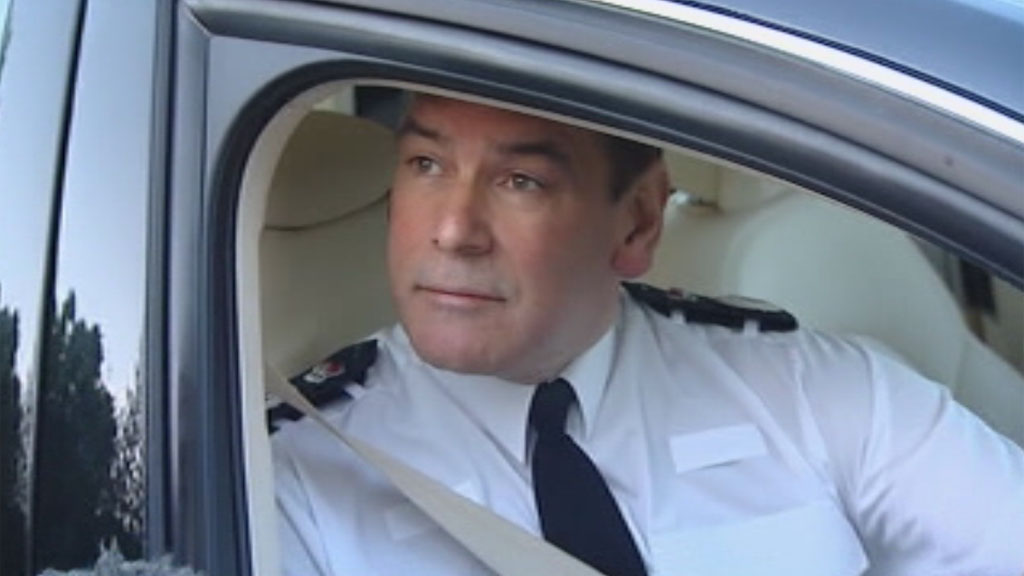Ex-chief constable Norman Bettison referred to IPCC
The Independent Police Complaints Commission begins assessing documents regarding allegations that a former chief constable may have tried to discredit a key witness to the Stephen Lawrence Inquiry.

The papers were uncovered by West Yorkshire Police following a request from the Home Secretary to all forces to “undertake an urgent but exhaustive search of records and archives to ascertain whether any material is held that suggests intelligence or surveillance activity was ordered or carried out in respect of the Macpherson Inquiry, Stephen Lawrence’s family or any others connected to the Inquiry or the family.”
The request was issued after claims that attempts were made to mount a smear camaign against the murdered teenager’s family.
On Wednesday the west Yorkshire Police and Crime Commissioner Mark Burns-Williamson said in a statement:
“I have become aware of three documents following a thorough search requested by west Yorkshire Police Chief Constable Mark Gilmore. These documents raise significant concerns over the role of Sir Norman Bettison at the time he was Assistant Chief Constable of west Yorkshire police in 1998 in commissioning a report to be prepared in the respect of a key witness appearing before the Macpherson Inquiry.
“This may suggest an attempt to intervene in the course of a public inquiry and influence the manner in which the testimony of a witness, who was due to present evidence before it, was recieved.”
In 1998 the Macpherson inquiry travelled to Bradford to take evidence from communities and police.
West Yorkshire Police said in a statement a witness “was the subject of a Police report in circumstances that have given rise to concerns about the motivation for the report and therefore its appropriateness”, adding “the discovery of this material identifies issues that raise serious concerns and warrant an immediate and fully independent investigation”
Mr Burns-Williamson is seeking an urgent meeting with the Home Secretary to discuss what he described as “possible corrupt practices” .
There are also concerns about the conduct of some senior officers in Greater Manchester around the time of the Lawrence Inquiry.
Investigations are underway into claims that a memo was circulated to officers instructing them to to gather information on groups or individuals who were attending these hearings.
Smear allegations
Both strands form part of an ongoing inquiry by lawyers appointed by the Home Secretary to look at allegations of police corruption during the investigation into the murder of Stephen Lawrence.
There’s also another inquiry into four decades of covert policing by a special undercover squad.
Last week one former member of that squad, Peter Francis, claimed he was told to gather intelligence in order to try to ‘smear’ the Lawrence family back in the early 90s – a claim rejected by his former line manager Bob Lambert.
Channel 4 news has been told that another 11 officers are to be seconded to that inquiry team, bringing the total to 44, of whom 75 per cent will be made up of Metropolitan police officers and staff.
Two-pronged inquiry
There are two strands to the investigation.
The first is looking at the entire history of the unit known as the special demonstration squad (SDS) and is examining the role of the Home Office and the Metropolitan Police, high profile operations, organisations targetted, deployment, selection, training,management but will not report on anything that will breach the Official Secrets Act or compromise national security.
The second part is a review looking at individual complaints, allegations and legal claims against the Met itself and also potential miscarriages of justice.
The Met commissioner will then decide what is worth investigating. The parents of Stephen Lawrence, Doreen and Neville Lawrence, are demanding a public inquiry.
-
Latest news
-
Debate: how should the arts be funded as Israel funding boycotts grow?7m

-
Operation Black Vote: quarter of BAME adults not registered to vote in UK4m

-
Home Secretary demands explanation after Surrey Police ram cow with vehicle4m

-
Princess Kate makes first public appearance since cancer diagnosis2m

-
Labour rules out capital gains tax on sale of homes | Election ‘243m

-




